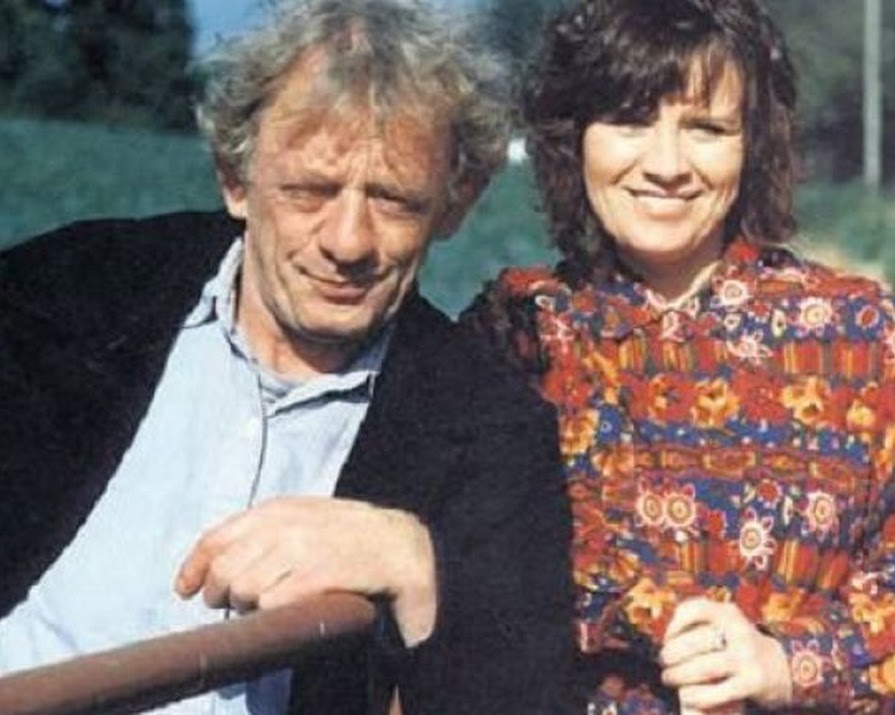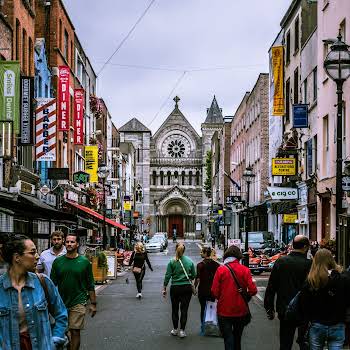
‘My accent is a reflection of my home, my family, my experience. I’m learning to embrace it’
By Edaein OConnell
25th Jul 2019
25th Jul 2019
Accents can be a point of disdain for many. However, our own Kerry native Edaein O’ Connell is learning to embrace hers and to be proud of where she comes from.
“Are you from Cork?” The words no Kerry person ever wants to hear, but unfortunately, I hear them often.
The tones of my Kerry lilt often quickly turn into rebel rolls, due to my co-habitation with a Corkonian for the past year. On a good day, I’m smooth north Kerry soul, stepping straight out of a John B. Keane script. On the not so good days, I’m Daithi O’Sé and Michael Healy Rae’s lovechild.
God forgive me but I have sinned because, at numerous times throughout my life, I’ve been ashamed of the accent I was born with. When I first moved to Dublin I got a job in a high-street store on Grafton Street. This was a big deal because, being a college student and broke, the staff discount was a dream.
However, I had a niggling fear that I wouldn’t be accepted into this new world. In the capital city, I was afraid my accent would be a hindrance and cause those around me to look at me like I was some sort of Karry caveman — one who only wears green and gold, eats Kerrygold morning, noon and night and believes Mick O’ Dwyer to be a patron saint.
Annoyance and disdain
I told my dad of my fears that I would be the stereotype of a culchie in the big city and he instantly scolded me, telling me I should never be ashamed of where I come from.
Thinking back, he was right. How stupid it is to be afraid of something so inherently you. Accents are a tiny minuscule part of being a person, they don’t harm anyone in any way. However, they are simultaneously a point of annoyance or disdain for many.
When I was asked to be a co-host of the IMAGE fashion podcast Smart Casual, my internalised fear popped out for a party. I convinced myself the podcast would lose listenership once they heard the Kingdom lilt. Thankfully, this didn’t happen but every once in a while I will listen back and cringe at myself.
Longford hits Love Island
In Ireland, we are blessed with a myriad of dialects and musicality. From Carlow to Donegal, Dublin to Offaly, Kerry to Waterford, each is different. No Irish native will ever sound the same.
One of the breakout stars from this series of Love Island has been the charismatic Maura from Longford. Blessed with beauty, wit and an ability to tell undeserving men to shag off, she also has a thick Longford accent. “Da tings I’d do to dat man” is on par with the season’s tagline of “it is what it is”. And her middle finger up to toxic masculinity (“dat’s a f***ing dickhead comment”) is some sort of modern-day feminist manifesto.
Twitter can be quite a lonely and cruel place and many comments were made on her accent, but all I gather from the Longford lass is that she is completely unashamed of who she is. She is proud of where she has come from. And even placing herself within the firing line of millions of people every night didn’t cause her to do a 180-degree turn on the person she is. What you see is what you get, and the accent is a big part of that.
Poet and actor Emmet Kirwan is a Dublin native and his voice is instantly recognisable. He’s been the voice over for many advertisements on Irish television over the last few years, most notably for phone network Three. However, in those, you would never guess he had the pure Dublin accent he does.
He performs most of his spoken word poetry in his native inflexion. Incredibly raw, piercing and emotive, it is Dublin town. In a recent interview on the Tommy Tiernan Show, he spoke of how important it was to retain his accent in his poetry saying: “It’s an embracing of my vernacular. It’s an embracing of my accent.”
“It’s uniquely Dublin.” @EmmetKirwan on his style of poetry. #TommyTiernan pic.twitter.com/yRtKPT5dF1
— RTÉ One (@RTEOne) June 8, 2019
Embrace it
In an interview with District magazine, he delved even deeper into the history that comes with our accents, something which resonated quite heavily with me. “You’re freed up by your accent, your accent is a tool, it’s indicative of who you are. It’s indicative of both your family, your friends, your experiences and where you’re from. The new Irish coming in have a new Irish accent that sounds like their parents. It’s part of where they’re from, who they are, that’s their identity, and they should embrace that. We should embrace it.”
Because the person you are now is the measure of your experiences. I am a reflection of my family, my friends, my community, my home. The waves and thrills of my dialect are parts of my childhood, my adolescence and adulthood. It’s days spent with my neighbours, a crisp winters afternoon at the North Kerry Championship, nightsout in Ballybunion and the week of the races in Listowel.
For so long, I have tried to dampen it and speak ‘properly and correctly’. Quiet the ‘sh’ sounds and make the natural musicality flat. However, it’s tiresome and draining and anytime I try to do it, I feel like I am insulting or disowning the Daithi O’Sé in me.
Anyway, anyone who leaves their home and comes back with a city accent is looked at with disdain and talked about after mass. And if there is anything you don’t want, it’s to be talked about after mass on a Sunday.
From now on, I’ll embrace it. Take advantage of something that at times can set me apart. I’ll call everything ‘cat’ and say ‘by god’ and ‘mar dhea’ after absolutely everything. For example “Isn’t he a fine lookin’ fella by god?” or “Ya they said they didn’t shift…mar dhea”
I’ll stay true to my roots and be proud that I have something so unique yet recognised wherever I go. And the next time someone even attempts to ask if I’m from Cork, well, I’ll tell them exactly where to go.
Read more: Remembering a different Ireland: why it’s important to ask your parents about their lives
Read more: Ironman or not, here is why you should visit Youghal
Read more: There’s still nothing being done to keep people in rural Ireland






















